- Home
- Neal Shusterman
Edison’s Alley Page 2
Edison’s Alley Read online
Page 2
“That machine is killing you,” Nick told him. “You might not want to admit it, but you know it’s true.” He swung himself to a handle slightly closer. Caitlin was now behind the man, out of his line of sight. Nick only hoped she knew what she had to do.
Nick held eye contact with the man, whose face grew red, his eyes spilling tears that floated away.
“Freedom isn’t freedom when you’re addicted to it,” Nick said.
“But I can’t stop. Don’t you understand? I can’t turn off the machine, because if I do…if I do…”
Nick reached out and put a hand on his shoulder. “I know. If you do, then everything will come crashing down.” Then he turned to Caitlin and shouted, “Now!”
And Caitlin, who had swung her way over to the machine, reached into the device and pulled out the pin so the weights slammed down, bringing the machine to a sudden halt.
The moment it did, everything—and everyone—that wasn’t nailed down plunged to the floor. Gravity, clearly not pleased by their blatant defiance of the law, was punishing. Nick and the large man slammed to the ground, with only a thin layer of worn carpet to cushion their fall. Either one of them could have broken his neck or back, or any other part of his anatomy, but good fortune left them only bruised.
Grimacing, Nick pulled himself up, the sudden return of gravity making him feel weak after only a five-minute lapse.
Caitlin was disoriented but not hurt, because she had been close to the floor. She noticed that their brief battle had dislodged several things in the room, such as the sofa cushions and a photograph. The glass in the frame had shattered, and shards now lay strewn across the carpet. What a hazard they’ll be, Caitlin thought, if things go weightless again.
She went over to Nick, fearing the worst when she saw the pain in his face. “Are you okay?”
“Yeah, I think so,” he said.
And then she looked at the man, who now lay in a heap, his body racked with sobs. But Caitlin knew it wasn’t from the pain of the fall.
As Nick picked himself up, recovering, Caitlin went to examine the man, who was not really the machine’s owner, but more like its victim.
He struggled to push himself to his feet, but he could not. Caitlin recalled how astronauts who have been in space too long can barely walk when they return home, because of how quickly muscles atrophy in a weightless environment. She marveled that Nick had the foresight to realize this when they were still floating.
Each time that Nick did something wildly insensitive or generally dim, he would redeem himself by doing something brilliant and profoundly insightful. Caitlin knew that if he were only brilliant and insightful, she’d dislike him—just as much as if he were only insensitive and dim. It was the fact that he constantly teetered between the two states that made him so interesting.
“Why did it all have to go so wrong?” the heavy man wailed.
She knelt down to him and put a hand on his shoulder. “Maybe it needed to go wrong,” she said softly, “to bring you to this moment.”
He looked up at her, his eyes questioning.
Among the debris in the room was a pen. She found a scrap of paper and wrote down a name and phone number. “My uncle wrestles with obesity and a slow metabolism. He runs a clinic for people who are sick of fad diets”—she glanced at the machine—“and, uh…other weight-loss gimmicks.”
The man took the slip of paper and stared at it.
“He’ll help you get back on your feet—so to speak,” she told him compassionately. “When you’re ready.”
He offered no resistance as they took the machine from the house, proving that maybe he was ready after all.
Even dormant and only semi-assembled, Tesla’s machine radiated energy.
Whenever Nick stood before the invention in his attic bedroom, he had no doubt that he was somehow a part of it, as were his friends, his father and brother, as well as everyone who had received one of the items.
His dad and Danny had already played their part in the inventor’s master plan. Nick kept the broken bat in the attic as a memento, but it and the lost baseball glove were spent—he could sense that they were no longer connected to all the other objects. They also didn’t fit into the machine. Neither did the Shut Up ’N Listen—an eerie variation on a See ’n Say toy—which had served its function by granting his friend Mitch the intermittent ability to “know the answer” even before anyone had formed the question.
The glove, the bat, and the toy were just “things” now, their purposes completed. But there was purpose left to spare for Nick and his friends and for all of the items still scattered through town.
Before the asteroid near miss, they had amassed twelve “Teslanoid Objects,” as they had dubbed them. In the three weeks since, Nick had been able to recover four more. Some people had turned up at Nick’s door begging him to release them from the burden, while others had to be tracked down through rumors and gossip.
Teslanoid Object No. 13. Just three days after the asteroid fell into orbit, a tired-looking woman had come by Nick’s house to return a toy she had bought at the garage sale. She didn’t even ask for her money back.
“Worst purchase ever,” she told him.
The toy was a jack-in-the-box with such a mind-jolting finale, it rendered the unsuspecting viewer unconscious for hours, like a powerful narcotic. The woman had been using the “narc-in-a-box,” as she called it, to put her fairly feral young children to sleep at night.
“But they figured it out,” the woman told him, “and began using it on me so they could stay up all night eating candy and watching TV. You can’t imagine what my house looks like every morning now,” she moaned. “Just take it! I never want to see it again.”
Teslanoid Object No. 14. When word got around school that someone’s little brother had broken his arm in a windstorm, Nick thought that odd, because there hadn’t been a whole lot of wind recently.
On a tip, Nick and Mitch visited a vacant lot, where they found a bunch of little kids playing with a hand bellows from the garage sale. The kids were using it to create little “dust devil” tornadoes, which they would then run into and get tossed ten feet away like rag dolls, laughing all the while. As mothers often say, “It’s all well and good until someone breaks an arm.”
Nick and Mitch traded very valuable video games for the bellows, ensuring that the kids wouldn’t suffer any more bodily injuries, except, perhaps, carpal tunnel syndrome from overuse of a game controller.
Teslanoid Object No. 15. Mitch had overheard a couple of English teachers discussing a curious situation involving a math teacher’s elderly parent. Apparently, the family had decided it was time to put Mom, now pushing ninety, into a nursing home. The woman, however, had no intention of leaving the house in which she had lived her life.
“According to Beth, who heard it from Alice,” the teacher had said, “they couldn’t get within five feet of her. It was like she was under some kind of protective spell.”
Of course they had laughed the story away—after all, the very idea of folk magic and bad juju was ridiculous.
But the idea of unexplained science was not.
After some detective work, Nick, Mitch, and Caitlin had located the woman. It took all of them working together to broker an exchange for the electric flour sifter, which, when hand-cranked, generated a force field about five feet wide. There was no telling how large or powerful that field would be when connected to its intended power source, whatever that might be.
To seal the deal Caitlin had to promise that her father, an attorney, would give the elderly woman free legal representation in her fight to stay put.
Teslanoid Object No. 16. This one was returned to Nick unexpectedly by a man with cotton balls in his ears. Nick had completely forgotten about the item: a tarnished gunmetal-gray clarinet.
“Do you have any idea what it’s like,” the man asked furiously, “to listen to your daughter play her poor little heart out in a recital—only to have everyone in
the audience run out screaming? Do you know what it’s like,” he shouted, “to have to shove cotton in your ears days after the trauma, because no matter what you do, you can’t stop hearing those hideous sounds?”
Nick took the clarinet from him. “I’ve been to school recitals,” Nick told him. “I feel your pain.”
Nick took the instrument upstairs. The clarinet’s bell fit perfectly over the nozzle of the hand bellows, making it clear that the creation of soul-searingly bad music was not the function of the “clarinet.” It was merely a by-product.
Now, with the weight machine about to be added to the collection, seventeen objects had been recovered, and fifteen were still missing.
Hauling the bulky weight machine home would have been close to impossible under normal circumstances. But Nick had discovered that he could turn the machine on low by putting the pin in at the lightest weight. Immediately it became light enough for Caitlin and him to carry down the street and up to the attic without anyone’s help.
Nick’s bedroom furniture was dwarfed by the grand and mysterious contraption that was taking shape in the middle of the attic, composed of all the individual objects that fit together like pieces of a puzzle. In only a few moments, Nick figured out exactly where the weight machine fit into the device. It slipped in behind the lamp, and its frame provided a space perfectly sized for the six miniature Tesla coils disguised as hair curlers.
Caitlin crossed her arms and frowned. “How do you do that?”
“Do what?” Nick asked.
“How do you know exactly how it fits together? I’m the artist. I’m supposed to be the one with an advanced visual sense.”
Nick shrugged. “I just picture it in my mind and I know.”
“Careful,” said Caitlin, with the slightest of grins, “or someone might accuse you of being a genius.”
“Yeah,” said Nick, “or an idiot savant.”
Caitlin’s grin got broader. “Or just an idiot.”
Nick nodded. “I’ve been accused of that before.”
He looked at the machine. He couldn’t deny he felt a sense of pride each time he put another piece of the puzzle together. It made him feel one step closer to the man who had designed it. Perhaps Caitlin was right—maybe he had absorbed a smidgen of Tesla’s brilliance.
“What does your dad think about all this stuff being back up here? He must wonder about it.”
“He would,” Nick admitted. “If he knew.”
“Wait—you mean—”
“My dad has trouble with his knees—just enough to keep him from coming up here,” he explained, glancing at the steep retractable attic stairs that led down to the second floor. “As long as I take my laundry to the basement, keep the room clean, and don’t let food go bad, he has no reason to come up here.”
“And if ever he does?”
Nick sighed. “I’ll deal with it somehow.” There was more to the situation with his father, but Nick didn’t want to go into it.
With the weight machine in place, Nick and Caitlin went downstairs to reward themselves with champagne glasses of sparkling Dr Pepper.
After the third sip, Caitlin asked, “What’s next?”
What was next for Nick had nothing to do with Tesla’s devices. But he wasn’t about to spring that on Caitlin. At least not yet.
“I saw an antique card catalog online that someone in town is selling. I think it’s the one from the attic.”
“Hmm,” said Caitlin. “If they’re selling it, it means they don’t know what it does.”
“Or,” suggested Nick, “they don’t like what it does and they want to get rid of it.”
“Either way,” Caitlin said, before taking another sip, “someone should check it out.”
Nick interpreted “someone” to mean “not her.” And he couldn’t blame her. After all, Mitch and even Petula were a part of this, too. But it seemed like Nick and Caitlin had been doing all the heavy lifting, with or without gravity reduction. And then there was Vince, who hadn’t been involved lately, for obvious reasons.
Nick said nothing for an uncomfortable moment, and Caitlin shifted as if about to get up.
“Well, I’ve got homework,” she said.
Nick stopped her. “Caitlin,” he said, “I’ve been thinking.” He tried his best to maintain eye contact, but somehow that had been easier to do with the weightless casaba man. “Yeah, I was thinking,” he repeated.
She looked at him expectantly.
“If we’re not going to go hunting for more stuff this weekend…” he continued, “I mean, you know, stuff from my attic—I mean Tesla’s stuff—not that I don’t like doing that…I mean, I don’t, but it’s okay when I’m doing it with you—”
“Nick,” Caitlin said gently, “you’re babbling.”
This interrupted his train of thought, which, he had to admit, was more like a train wreck. “What I mean to say is that I know how you like funny foreign films that end badly, and My Big Swedish Funeral is playing downtown.”
“Are you asking me out on a date?” Caitlin asked with unbearable bluntness.
“Well…yeah. I guess.”
“You guess? Or you are?”
Nick took a deep breath. “I am.”
“Oh,” said Caitlin. “Okay.”
“Okay, yes? Or okay, you’re acknowledging that I just asked you out on a date?”
“The second, I think.”
“You think? Or you are?”
Caitlin took a deep breath, which was not a good sign. “Nick,” she began, “we’re in the middle of something really important. Going out on a date would…complicate things, don’t you think?”
Nick felt his ears turning red, and he hoped his cheeks weren’t turning red as well. “I think complicated is good.”
Caitlin’s shoulders sagged.
“Unless,” Nick said, perhaps a little more belligerently than he meant to, “your heart is still set on Theo.”
She looked at him as if he’d just slapped her. “It’s not that, and you know it.”
“Do I?”
He could see Caitlin struggling for words. Good, he thought, let her struggle. If she’s going to turn me down, let it be as hard for her as it was for me to ask.
“I’m just not sure how I feel about it.”
Nick got up with so much force that his chair slid backward across the kitchen floor. He wanted to storm out, but he realized that this was his house, and storming out would be weird. So he just stood there.
“Well,” he said, “maybe you should get Tesla’s tape recorder so it can tell you how you feel.”
Caitlin rose from her chair. “That,” she said, “was uncalled for.”
She turned and stormed out far more effectively than Nick would have.
Nick resolved not to feel bad about what he’d said, and not to regret having asked her to the movies. Their friendship had grown since those first difficult days. It had survived the near end of the world. Was it too much to ask that their friendship take on a new dimension?
Now that Caitlin was gone, Nick returned to the attic and stood alone in front of Tesla’s machine.
He was hurt by Caitlin’s rejection, but, somehow, being with the machine made him feel a little bit better. He couldn’t explain its grip on him. How, when he was near it, he had the urge to crawl inside it. To become a part of it. It now occupied that strange gravitational vortex in the center of his attic—the spot where he used to sit when the room was empty. Being there had made him feel like he was at the center of all things, but more importantly, at the center of himself. He couldn’t get to that place now. The best he could do was be near the machine. Nick felt a growing need to tend to it.
To complete it.
Just as Caitlin had said—before shooting him down in flames—Nick intuitively knew how the objects fit in the larger machine, although he had no idea what each object’s specific function in the device was, and with each part he added, the pull to completion grew. The closer he got to finishi
ng Tesla’s Far Range Energy Emitter, the more it seemed the machine wanted to be finished.
Nick’s feeling of urgency was far preferable to the humiliation Caitlin had left him with. And so, secret and alone, he stood as close as humanly possible to the unfinished machine, trying to somehow resonate with its purpose, and longing for the day he could finally fire it up and see what it did.
Caitlin didn’t even remember the walk home from Nick’s house that day, she was so filled with frustration and anger. Long before she reached her front door, however, she realized she was angry at herself, not Nick.
The tape recorder that Nick had so coldly brought up had given her enough insight into herself to know that he had every right to be upset with her. Perhaps they were growing into more than friends. And if she was leading him on, there was a reason. Admittedly she liked him, even if she admitted it to no one but herself—but dating carried the kind of baggage that neither she nor Nick could afford right now.
In Caitlin’s experience, a boyfriend was someone you thought you really liked, but once you got to know him, you spent all your time figuring out how to escape. Caitlin figured that dating would be like that until she finally got the hang of it. Only then would true love set in; only then would she find her soul mate.
She suspected that Nick might very well be soul-mate material, but turning him into a Theo would ruin that. Was there something wrong with her, that she would keep dating a boy she didn’t want to spend time with, and keep spending time with a boy she was afraid to date?
“Caitlin, honey,” her mother said as she walked into the house, “Theo’s here.”
And there he stood in the doorway, her ex/not-quite-ex-boyfriend.
Caitlin sighed. “Of course he is.”
“Did you forget we were studying for science today?” he asked.
“Sorry,” she said. “There was something I had to take care of.”
Then she sat down, and they pulled out their science books and got to work.

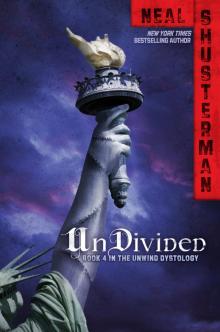 UnDivided
UnDivided UnBound
UnBound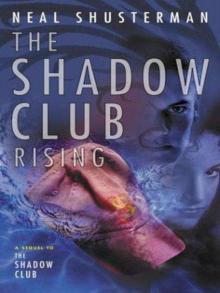 The Shadow Club Rising
The Shadow Club Rising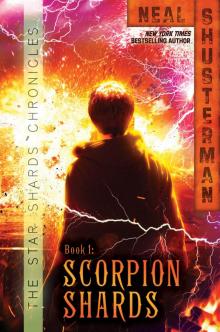 Scorpion Shards
Scorpion Shards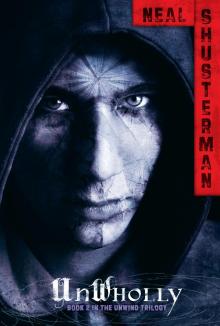 UnWholly
UnWholly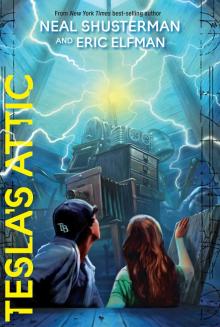 Tesla's Attic
Tesla's Attic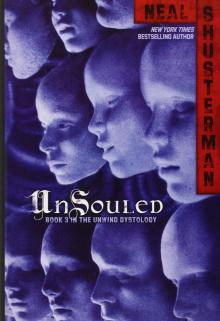 UnSouled
UnSouled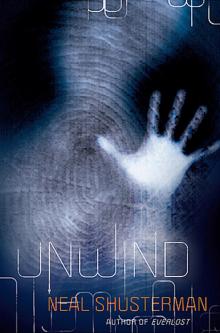 Unwind
Unwind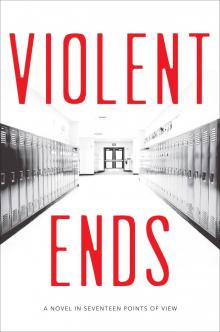 Violent Ends
Violent Ends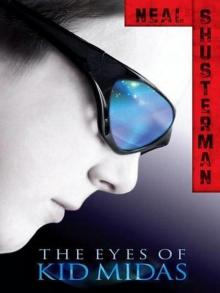 The Eyes of Kid Midas
The Eyes of Kid Midas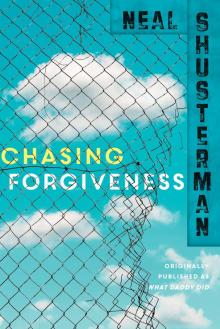 Chasing Forgiveness
Chasing Forgiveness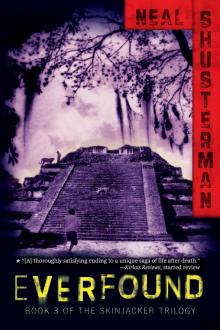 Everfound
Everfound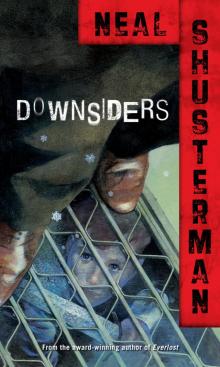 Downsiders
Downsiders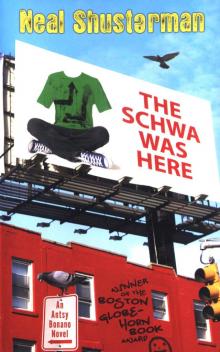 The Schwa Was Here
The Schwa Was Here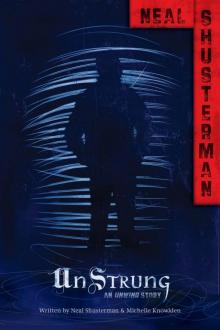 UnStrung
UnStrung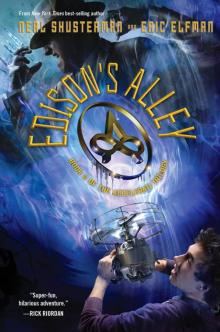 Edison's Alley
Edison's Alley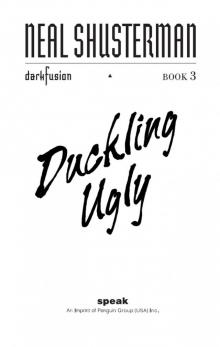 Duckling Ugly
Duckling Ugly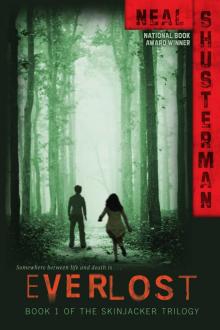 Everlost
Everlost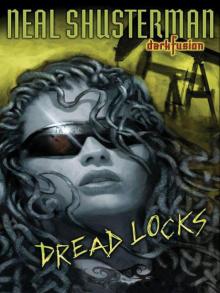 Dread Locks
Dread Locks Antsy Floats
Antsy Floats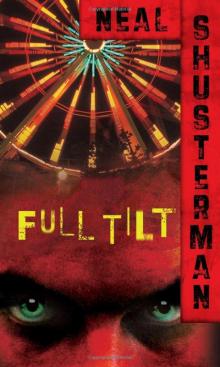 Full Tilt
Full Tilt Thunderhead
Thunderhead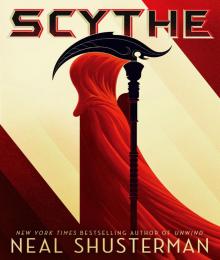 Scythe
Scythe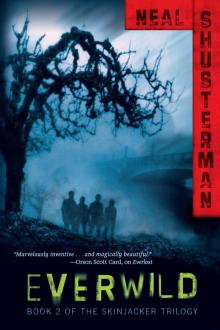 Everwild
Everwild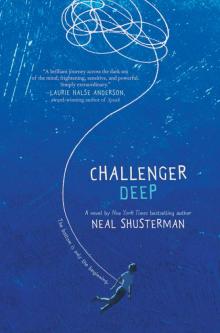 Challenger Deep
Challenger Deep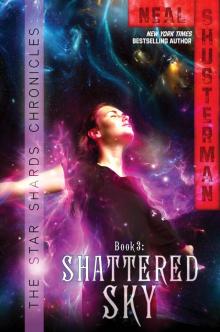 Shattered Sky
Shattered Sky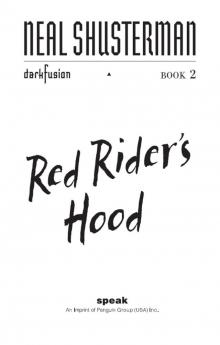 Red Rider's Hood
Red Rider's Hood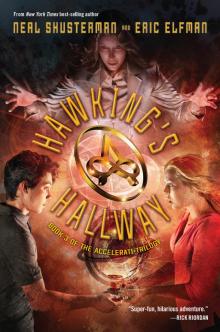 Hawking's Hallway
Hawking's Hallway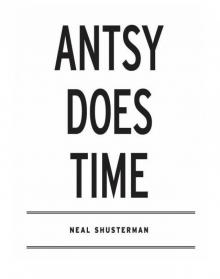 Antsy Does Time
Antsy Does Time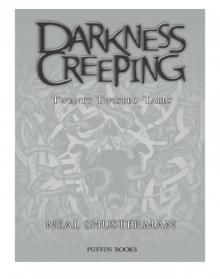 Darkness Creeping: Twenty Twisted Tales
Darkness Creeping: Twenty Twisted Tales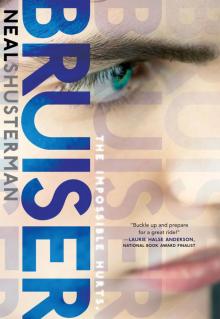 Bruiser
Bruiser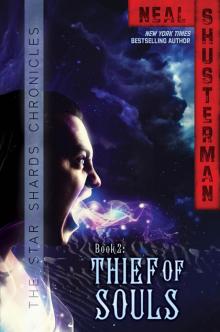 Thief of Souls
Thief of Souls The Toll
The Toll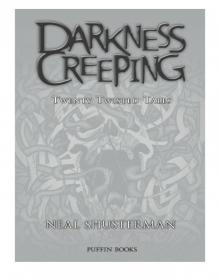 Darkness Creeping
Darkness Creeping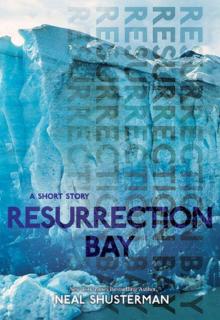 Resurrection Bay
Resurrection Bay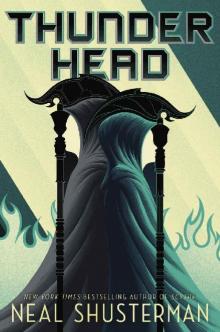 Thunderhead (Arc of a Scythe Book 2)
Thunderhead (Arc of a Scythe Book 2)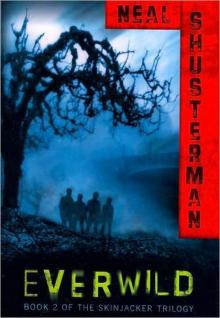 Everwild (The Skinjacker Trilogy)
Everwild (The Skinjacker Trilogy)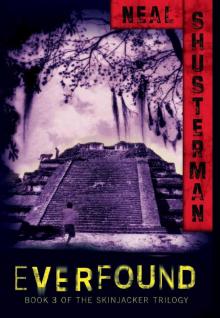 Everfound s-3
Everfound s-3 Edison’s Alley
Edison’s Alley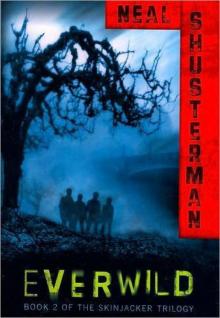 Everwild s-2
Everwild s-2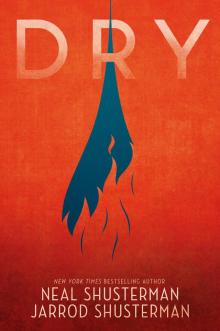 Dry
Dry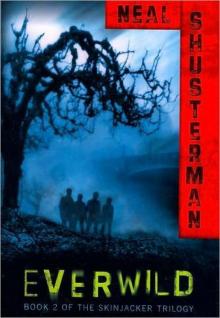 Skinjacker 02 Everwild
Skinjacker 02 Everwild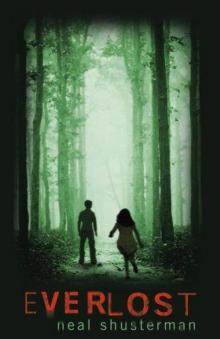 Everlost s-1
Everlost s-1